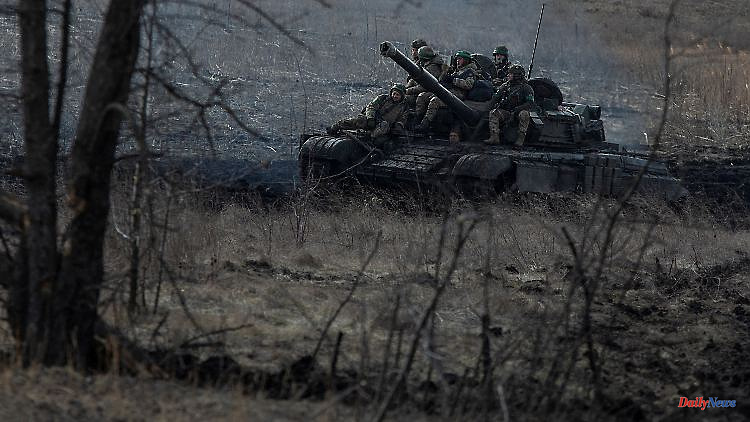Although Moscow's formations are threatening the supply routes, Ukrainian units are still holding out in Bakhmut. The city's fierce defenses are reminiscent of last summer's fighting. Once again, the weakening of Russian troops could prove to be an advantage for Kiev.
The Russian military has been trying to capture Bakhmut for about seven months. Already, the struggle for the city in the Donetsk region is the longest-running battle of the war, with heavy casualties for both sides. According to Ukrainian Defense Minister Oleksiy Reznikov, the Russians are losing up to 500 men to death and wounds at Bakhmut every day. Despite the Ukrainians' fierce resistance, Moscow's troops have made gains in recent weeks that threaten the city's three supply routes.
The greatest danger for the Ukrainian armed forces is therefore being surrounded. One of the three main traffic routes is already blocked by Russian units, the other two roads are under artillery fire. "The enemy is trying to advance and is conducting attacks not just every day, but almost every hour," Deputy Commander of the Ukrainian National Guard Volodymyr Nazarenko told NV Radio on Friday. But the defenders of the supply lines would remain steadfast. However, should the Russians succeed in cutting off the supply routes, the situation for the Ukrainians would probably deteriorate dramatically.
Despite the difficult situation, the Ukrainians do not seem to want to give up the city just yet. The "New York Times" reports, citing Ukrainian commanders, that they want to hold the positions as long as possible in order to weaken the enemy. "The task of our troops in Bakhmut is to inflict as many casualties as possible on the enemy," Nazarenko also told NV radio. "Every meter of Ukrainian land costs the enemy hundreds of lives."
The Ukrainians were already pursuing a similar strategy in the battles for Sievjerodonetsk and Lysychansk last summer, writes the New York Times. The two twin cities in the Luhansk region were fought over for weeks before falling to the Russians. At the height of the battle, hundreds of defenders were killed or wounded every day, according to Ukrainian estimates. However, the spokesman for the Ukrainian army command east, Serhiy Cherevaty, stated that the Ukrainian delaying tactics significantly weakened Moscow's forces and thus laid the foundation for Ukraine's successful autumn offensive.
For Kiev, the question of the right timing for a deduction now arises. According to official information, Ukrainian reserves reached the combat zone this week. Whether they are there to hold Bachmut longer or to cover a retreat is unclear. Several new defense lines already exist outside of the city. According to the New York Times, Kiev expects that should Bakhmut fall, the fighting will shift to the nearest town of Chasiv Yar, where Ukrainian forces are already expanding their positions.
According to the US newspaper, military analysts also assume that Moscow will probably have difficulties using Bakhmut as a springboard for further conquests. The Ukrainian forces would withdraw and the fighting would then resume just a few kilometers to the west. Similar to the summer, Kiev could then exploit the weakness of the Kremlin associations and launch a new counteroffensive.












